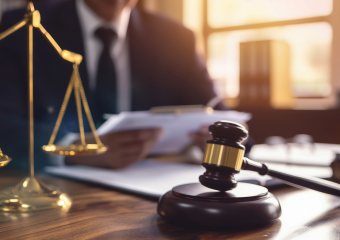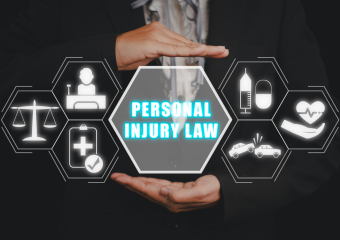Georgia’s Best Guide to Personal Injury Laws for Atlanta Residents
Understanding Georgia’s Personal Injury Laws: What Atlanta Residents Need to Know
Personal Injury Laws in Georgia
When living or traveling through Atlanta, understanding the specific contours of Georgia’s personal injury laws is crucial, particularly for anyone who might find themselves unexpectedly involved in an accident. These laws dictate how residents should proceed in the event of injury due to someone else’s negligence or direct actions. Familiarity with local legal principles not only helps in making informed decisions during stressful times but can also bolster your means of effectively securing rightful compensation.
The Basics of Negligence in Georgia
In Georgia, a key factor that influences personal injury claims is the concept of negligence. Negligence occurs when an individual fails to exhibit a level of care that a reasonably prudent person would under similar circumstances, leading to harm or injury to another person. To establish negligence in a personal injury case, the injured party (plaintiff) must demonstrate four key elements:
- Duty of Care: The defendant had a legal obligation to act with care towards the plaintiff.
- Breach of Duty: The defendant failed to meet that duty of care.
- Causation: The breach of duty directly caused the injury or harm.
- Damages: The plaintiff suffered measurable damages due to the incident (such as medical expenses, loss of earnings, etc.).
The Role of Comparative Negligence
One of the nuances of Georgia’s legislation that is particularly important for residents of Atlanta to understand is the rule of comparative negligence. Under this rule, if a claimant is found partly at fault for the incident that caused their injuries, their compensation can be reduced by their percentage of fault.
It’s crucial to highlight that Georgia adheres to a “modified” comparative negligence model. This means you can only recover damages if you are less than 50% responsible for the accident. If you’re found equally or more responsible (50% or more), you will not be entitled to recover any damages.
Statute of Limitations: Time Constraints on Filing Claims
Another critical aspect to be aware of is the statute of limitations for filing a personal injury claim in Georgia. Generally, the limit is two years from the date of the injury to file a lawsuit in the state’s civil court system. This time frame is stringent, and failing to initiate a claim within it typically results in losing the right to seek compensation.
However, there are exceptions, particularly in cases where injuries are not immediately apparent. Moreover, for claims against a city or county, you must file a formal claim within six months of the injury, making it essential to act swiftly and seek legal advice promptly.
Steps to Take After an Injury
Following an injury, the steps you take can significantly affect the outcome of your legal claim. Here are a few critical actions to consider:
- Medical Attention: Seek immediate medical care, not only for health reasons but also because medical records serve as crucial evidence in personal injury cases.
- Document Everything: Gather as much information as possible — photos of the accident scene, contact details of witnesses, a detailed account of what happened, and any police reports that were filed.
- Consult a Personal Injury Lawyer: Navigating the complexities of personal injury law can be challenging. Consulting with a lawyer who specializes in this area can provide crucial guidance and increase your chances of a successful outcome.
Finding the Right Lawyer in Atlanta
Securing proficient legal representation is essential. Look for attorneys who specialize in personal injury and have a strong track record in handling similar cases in Georgia. An experienced lawyer can provide invaluable assistance, from negotiating with insurance companies to representing your interests in court.
Conclusion
Understanding Georgia’s personal injury laws is more than just legal scholarship — it’s a practical necessity for protecting yourself in the unfortunate event of an accident. By comprehending the foundational principles such as negligence, comparative negligence, and statutory limits, Atlanta residents can navigate the aftermath of personal injuries with greater confidence and efficacy. Whether dealing with minor incidents or significant damages, knowledge and timely action are your best allies.






